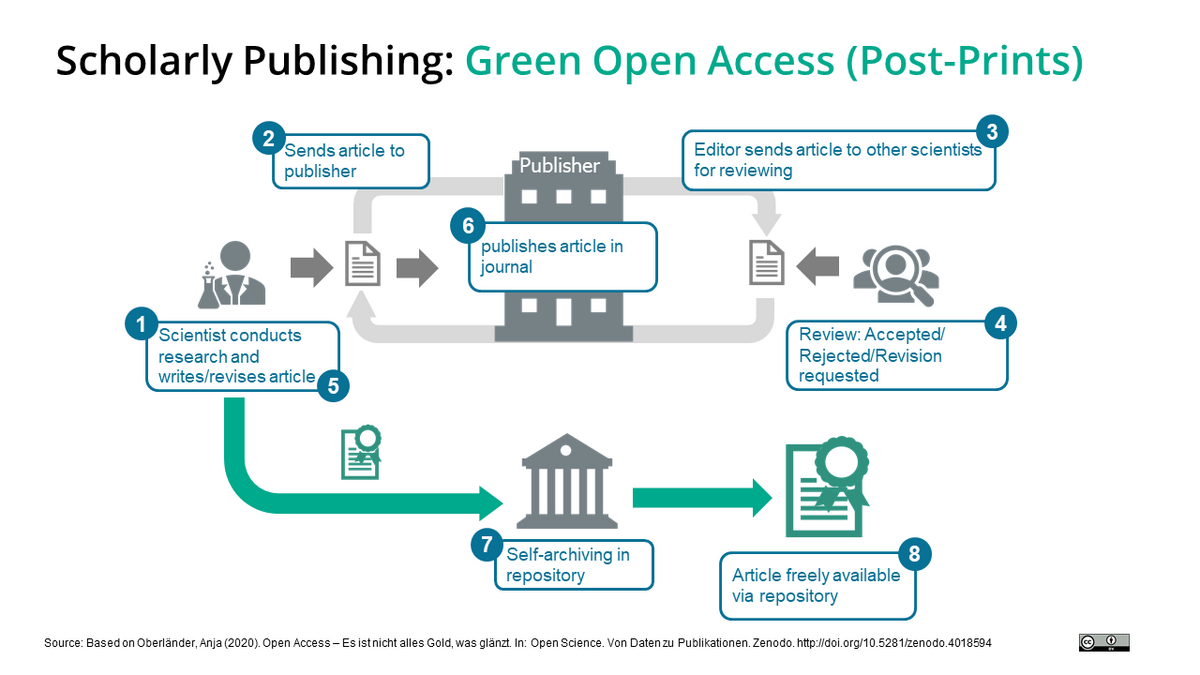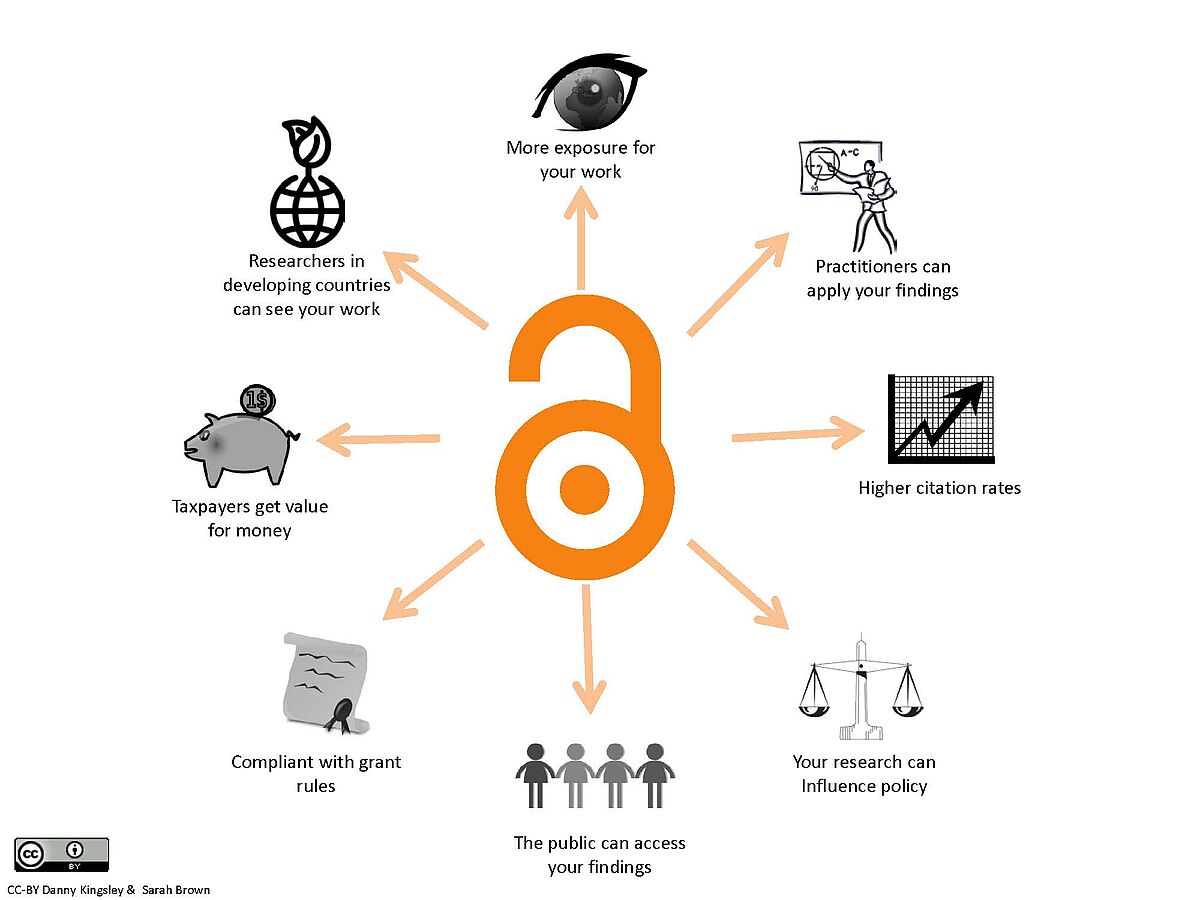Information and Advice
The goal of open access publishing is making scientific knowledge and progress freely available worldwide to read and use in further research. Leading research facilities as well as many scientists worldwide have signed on to the Berlin Declaration on Open Access to Knowledge in the Sciences and Humanities.
What is open access? Video By Nick Shockey and Jonathan Eisen
Open Access Publishing - Online tutorial on open access publishing
Service Hotline
Open Access Team
University of Greifswald
Service hours
Monday to Friday: 9 am -11 am
Phone +49 3834 420 1531
openaccessuni-greifswaldde
- cost-free and faster access to scientific information
- fair use of taxpayers' money and requirements set by funding organizations
- free access to publicly funded research
- increased visibility and citation frequency of publications
- promotion international and interdisciplinary cooperation
- authors retain rights to their work
- long-term availability of documents
- facilitating research efficiency
- improving access to information and solution to increased journal subscription costs
- advantages in networked, IT-supported work environments
- establishing priority
- good discoverability by search engines, databases and indexing services

1. Gold Open Access – initial publication in open access
Publishing in a peer-reviewed true open access journal is called gold open access. The article or book is freely available online immediately upon publication. This publication will incur costs which most publishers pass on to the authors as article processing charges (APCs) or book processing charges (BPCs).
Publications under the diamond open access business model on the other hand are funded by foundations, academic associations or a consortia and do not charge APCs. You can find a list of diamond open access publishers here.
2. Green Open Access – self-archiving in a repository
Green open access is the publication in an institutional or disciplinary repository. This makes publications that were initially published in closed access freely available online. Depending on the publisher’s open access archiving policies publication in a repository is possible either immediately or after an embargo. Since April 2019 Greifswald scientists can publish their work in the repository of the University of Greifswald.
More information on the publishing process, licenses as well as requirements for the documents is available here.
3. Open Access through Transformational Agreements
Some publishers also offer so called hybrid journals which include articles in open access as well as closed access articles. This model means that institutions pay the publisher twice: a subscription fee as well as publishing fees (APCs). To preclude this libraries negotiate transformative agreements or publish and read agreements (PAR agreements) with publishers. You can find a list of our transformative agreements here.
Check your journal in the Directory of Open Access Journals
- DOAJ (Directory of Open Access Journals) is the largest database of open access journals and includes only peer-reviewed high quality academic journals.
If your journal is not (yet) included in the DOAJ:
- use the Think,Check, Submit checklist to determine the suitability of your journals or
- ask your colleagues or academic advisors for advice.
Predatory journals often have a professional looking website and aggressively market their “services”. These journals provide either no or only insufficient quality control measures like peer review. More information on predatory journals
Please contact us at openaccessuni-greifswaldde if you have questions or concerns.
Please be advised that the following content is meant for information purposes only and does not constitute legal advice.
1. Licenses for Open Access Publications
Publications should be published under a Creative Commons License or comparable. The University of Greifswald recommends publishing under the CC BY 4.0 license.
2.Publishing Agreements between Authors and Publishers
Make sure not to grant the publisher exclusive rights. Tips on preserving you self archiving rights
3. Publishers’ Open Access Policies
The database SherpaRomeo contains information on the self archiving policies of different publishers. However, their information is not legally binding. When in doubt, your publishing agreement contains the terms.
4. Self-Archiving under § 38 UrhG (4)
In rare cases German copyright law (§38 UrhG (4)) provides a possibility for self archiving. More information
- SHERPA/RoMEO (database that provides summaries of publisher copyright and open access archiving policies)

